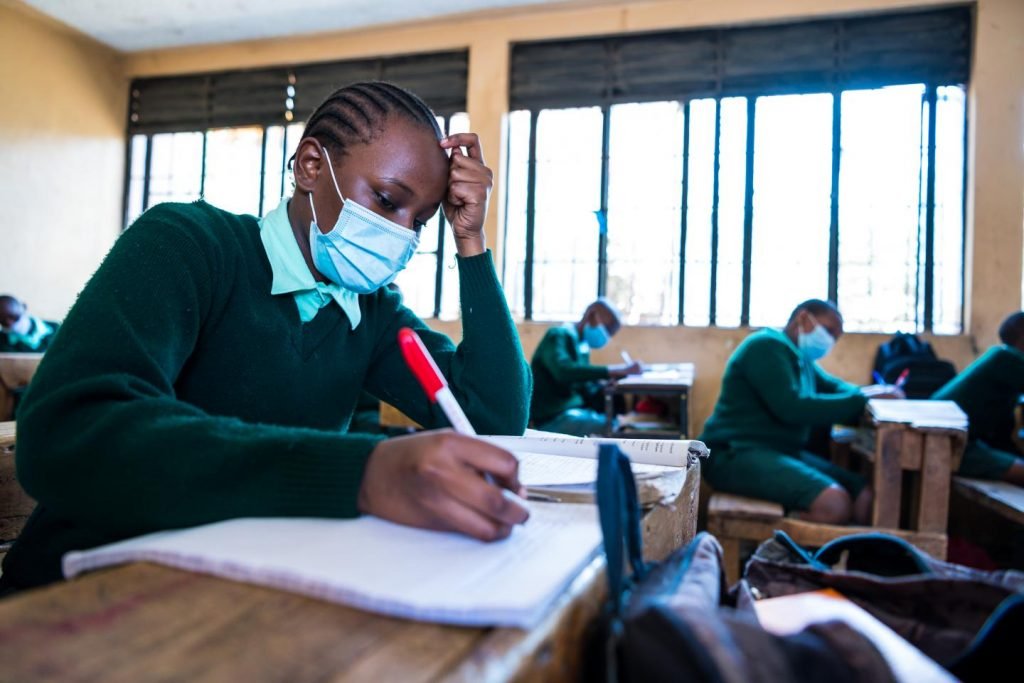Pastoral care in education means a recognition of, and response by an educational institution to ensure the holistic welfare of children. It is generally aimed at ensuring children are safe, engaged, involved and able to fulfil their potential.
Following the disruptions of 2020, it is important for schools and educators to understand that extra care is paramount as students settle in school. This will ensure learners are not just continuing with their educational journeys, but that they also receive the support they need as far as mental and emotional wellbeing is concerned.
“It has been so wonderful to welcome students back to our campus, the energy is palpable and the excitement clear. However, we are very aware of the fact that 2020 took its toll on everyone, not least school-going children, and that they return after a year that for many would have been traumatic, frustrating, lonely and isolating,” says Jenny Coetzee, managing director at Crawford International School Kenya.
Ms Coetzee says the past year has had a significant impact on the mental and emotional wellbeing of most people, and young children have not escaped the impact of Covid-19 and the curfews in this regard. Contributing factors include changed routines, breaks in continuity of learning, breaks in continuity of healthcare, significant life events that were missed as well as loss of safety and security.
Download Nairobi Business Monthly Latest Edition
“Simply put, the students we said goodbye to last year when schools closed due to Covid-19, are not the same students who recently returned to us. They were faced with unprecedented upheaval and uncertainty for months on end, and some even the loss of loved ones, and these experiences would have, to varying degrees, impacted on their mental and emotional wellbeing,” she Coetzee.
A September report by the Centre for Disease Control noted that Covid-19 affected children directly and indirectly beyond getting sick or the threat of them or their loved ones falling ill. Many children’s social, emotional, and mental well-being have been impacted by the pandemic.
“It should not be business as usual for the time being. We as educators need to be aware that on top of the demands of providing the highest quality of academic excellence, we should also be cognisant that our students may require increased levels of compassion, support and empathy, until we’ve settled into our new routines under what remains unusual circumstances which include social distancing and wearing of masks,” says the Crawford International School director, adding that it is heartening to see how enthusiastic students and their families, as well as educators, are about the return to physical school.
“Even if things remain a little strange, getting back into a routine provides a glimmer of light at the end of the tunnel, that life may slowly be returning to normal. And with our schools now open again, it’s almost as if there is some energy being generated again that will be to the benefit of the whole nation,” she says.
Angelica Ouya, education director at the Makini Group of Schools, which is a sister school of Crawford, agrees on the importance of pastoral care as students settle in, saying educators must aim to be more empathetic and flexible.
“Don’t expect things to pick up where they left off 10 months ago,” she says. “Returning to the new normal while we are still dealing with the challenge of Covid will take time. So while we are phasing in, expectations must be tempered and education needs to happen on more fronts than purely academic. We’ve seen Covid again underscore the importance of the cultivation of 21st Century and Soft Skills, so we as educators have an important role to play during this time of transition, to help our students build their resilience and growth mindsets.”
It is also important to remember that there will be gaps in learning, because some students could continue online, while some couldn’t. Ouya says that while the past year came with unprecedented challenges, it has also led to some remarkable stories of resilience and growth under difficult circumstances.
“At Makini, we’ve had to adapt and adjust to ensure our students are able to progress despite constraints. In doing so, we were able to introduce new formats of learning as well as a new curriculum, the Cambridge curriculum. We are grateful also for the lessons learned last year, as we were able to not only survive, but innovate and develop,” says Ouya.
While 2020 showed that when under pressure, it is important to adapt and see how to do things differently. Citing live streaming, additional offerings and more options, Coetzee says that student needs are better served when they can learn within a safe, supportive and structured environment, surrounded by their peers where possible.
“We still have a way to go to put the effects of 2020 behind us… 2021 provides a fresh start for all educators to re-connect with the young people in their care, and provide them with a solid foundation for the future,” says Coetzee.



